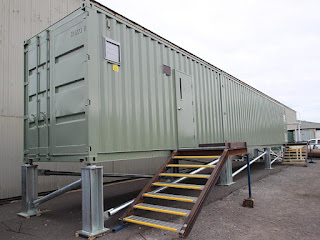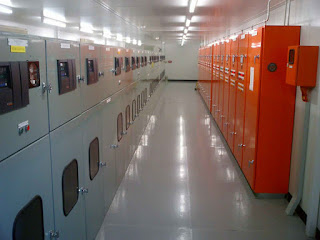The Purpose of Electrical Control Rooms And Its Operators
When something abnormal is detected in the flow of electricity and electrical equipment, the main role of a control room troubleshoots and repairs the electrical and mechanical equipment to get everything back on track to minimize safety risks and economic losses. Operators who work in a control room generally sit or stand at a control station. The work is not physically strenuous, but it does require constant attention. Workers also may do rounds, checking equipment and doing other work outside the control room. Because electricity is provided around the clock, operators, distributors, and dispatchers usually work rotating 8- or 12-hour shifts. As a result, all operators share the less desirable shifts. Work on rotating shifts can be stressful and tiring because of the constant changes in living and sleeping patterns.
The design of the control room, its size in terms of the number of cameras, monitors and operators, and the organisation of monitoring, had noticeable impacts on the effectiveness of control room operation and to their designated stations. The probability of detecting an incident on the cameras is substantially reduced when there is a high camera-to-operator and camera-to-monitor ratio. Some cases when there are several cameras per operator or per station. Three monitoring procedures were observed, each with its advantages and disadvantages depending upon the aims of the systems, their size and the types of systems in place. The ideal monitoring style is subjected, whereby the operator was responsible for monitoring a specific geographical area, yet was able to monitor all the cameras in the control room whenever necessary. Proper procedures ensured that all areas received some level of attention, but also ensured that the operators could work together during more serious incidents and surges.
The professional operators in the control room works in large plants, in particular power plants, where they monitor all of the operations of the plants to ensure that everything is working properly. Control room operators manage the creation and flow of electricity from power plants to businesses, homes and factories. Control room operator’s work at all kinds of power plants, including coal, gas, nuclear, hydroelectric, and wind and solar power. As electricity usages declines and more people shift to alternate forms of energy, Control Room Operator jobs may be declining over the coming years.
When hiring a control room operator, make sure they must have the following abilities and skill requirements:
- Must have strong aptitude in math; ability to use addition, subtraction, multiplication and division to perform flow, pressure, performance and meter calculations.
- Must have the ability to work both independently and in a team environment
- Must have the knowledge of generating unit operation, engineering, or maintenance practices
- Must have the ability to operate various switches, control devices and valves, and knowledge of the effect each has on total plant operations
- Journeyman level mechanic or experience maintaining plant equipment
- 40 hour Health & Safety, OSHA 29 CFR 1910.120, Confined Space Entry, and Trench Excavation Safety training
- Ability to read and interpret blueprints, schematic diagrams, procedures and technical manuals.
An important duty of the control room operator is to monitor the operations of emissions control equipment and adjust it to meet state and federal permits.



Comments
Post a Comment